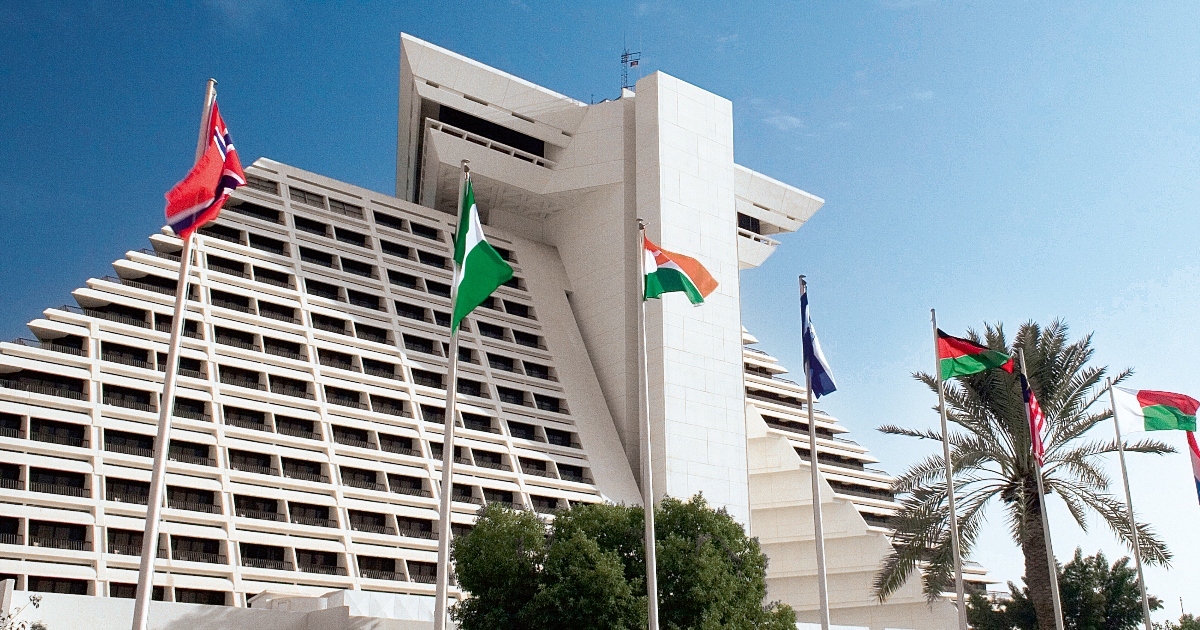

The Sheraton Grand Doha, which has achieved Green Key certification
Mega-events like the FIFA World Cup™ are known to produce excitement and joy to the millions who attend and engage with them. In turn, there are numerous benefits to hosting such an event, including economically and socially.
Yet, for all the positives that such an economic boost provides, there is also associated waste, carbon emissions and water use. It was these challenges, along with many others, that prompted Qatar’s pledge to deliver a carbon-neutral World Cup. This will be achieved by estimating carbon emissions, reducing them as much as possible, and offsetting any that are remaining.
A goal such as this requires important partnerships with like-minded stakeholders. One of those partnerships has seen the Supreme Committee for Delivery & Legacy (SC) form a collaboration with Qatar Green Building Council (QGBC). Together, the SC and QGBC consult with Qatar’s hospitality sector to encourage them to adopt sustainable practices, in the lead-up to the World Cup and beyond.
“The actual partnership started when we found that we have very specific areas where we can work together,” said QGBC Director, Eng. Meshal Al Shamari. “When we looked at the Sustainability Strategy for the World Cup, we became even more committed to adopt the best practices and tailor them for Qatar, and also make them expandable to other countries.”
Al Shamari continued: “The design process took some time – but when the implementation started, we found the SC very advanced in the sustainability field. They have a great team that uses sustainability experiences and best practices from all over the world.”
A member of Qatar Foundation, QGBC was established in 2009 as a non-profit, membership-driven organisation that provides leadership and encourages collaboration in conducting sustainable practices in Qatar. Key to QGBC’s goals are building and engaging an active network of stakeholders to champion sustainability.
This has seen achievements in supporting local hotels earn certification through initiatives like the Green Key Award. As a leading international standard of excellence in the field of environmental responsibility and sustainable operation within the tourism industry, Green Key has certified 11 hotels in Qatar since 2016.
The SC and QGBC have collaborated to deliver workshops about sustainability best practices – and while Al Shamari is looking forward to measuring the effectiveness of the collaboration in the near future, he is keen for the work to continue long after the final whistle is blown at Qatar 2022.
“It is important at this stage to capture challenges and explore solutions, in addition to informing and educating the sector through local and global best practices” Al Shamari said. “The documentation of the work during this period and during the World Cup in 2022 will make for a very good reference of experiences that can drive decision making process and national policies towards a sustainability paradigm shift in the hospitality sector within Qatar and also internationally.”
He continued: “Our support to sustainability in Qatar will not conclude at the end of the World Cup, it will continue for years after that. This will allow us to amend our systems and schemes based on those outcomes. It will be a great legacy that we can share with the world.”
The SC’s Sustainability Director, Eng. Bodour Al Meer, underlined the importance of the collaboration with QGBC.
“The hospitality sector will play a key role in the successful delivery of the tournament,” said Al Meer. “We are proud to be partnering with QGBC on this project to encourage green practice in this sector. Fans, officials and teams that use their accommodation during the World Cup are one of the main contributors to the tournament’s carbon inventory – but by working together, we can reduce that. Hotels will continue to welcome guests long after the tournament’s final whistle. It is an opportunity to leave a green legacy for the World Cup.”
Learn more about the SC’s Sustainability Strategy: https://www.sc.qa/en/about/sustainability

